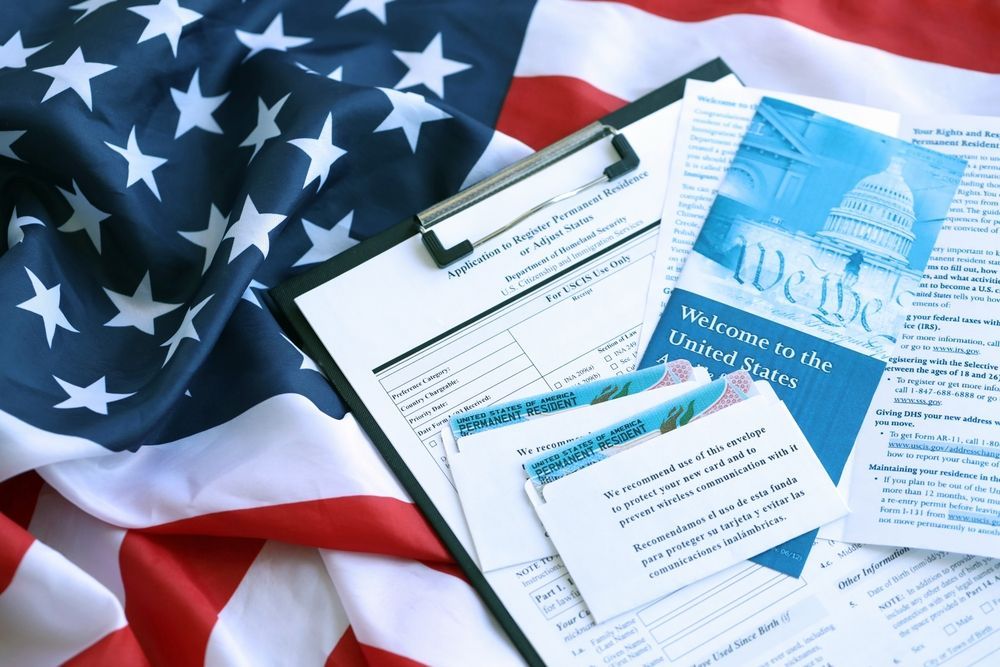Employment-Based Immigration: Opportunities for Foreign Workers and Employers

Employment based immigration serves as a cornerstone for the United States' economic growth and cultural diversity. By opening doors to foreign talent, this immigration pathway enriches the U.S. labor market with a wide array of skills and perspectives that are crucial in the global economy. Foreign workers bring with them not just their expertise in various fields but also their cultural insights, contributing to a more diverse and innovative workplace environment.
The U.S. economy, renowned for its dynamic and innovative capabilities, greatly benefits from the infusion of talent that employment-based immigration provides. Sectors ranging from technology and healthcare to education and the arts have seen significant contributions from immigrants, driving advancements and filling critical gaps in the labor market. For employers, this presents a valuable opportunity to address skill shortages that might otherwise hinder their growth and competitiveness. This symbiotic relationship between foreign workers and U.S. employers underscores the essential role of employment-based immigration in shaping a prosperous and diverse society.
Understanding Employment-Based Immigration Categories
The U.S. employment-based immigration system is structured to cater to various types of workers and the diverse needs of employers across different industries. This system is divided into several preference categories, each designed to address specific qualifications, skills, and professional backgrounds.
First Preference (EB-1): Priority Workers
The EB-1 category is reserved for individuals who possess extraordinary abilities in their field, outstanding professors and researchers, and certain multinational executives and managers. This category allows those at the top of their profession to immigrate to the U.S. without the need for a labor certification, given their recognized contributions and exceptional talents.
Second Preference (EB-2): Professionals Holding Advanced Degrees and Persons of Exceptional Ability
The EB-2 category targets professionals who hold advanced degrees (beyond a bachelor's) or their equivalent and individuals with exceptional ability in the sciences, arts, or business. This category often requires a labor certification and a job offer from a U.S. employer, although waivers may be available for individuals whose work serves the national interest of the United States.
Third Preference (EB-3): Skilled Workers, Professionals, and Other Workers
The EB-3 category encompasses a broader group of workers, including skilled workers with at least two years of job experience or training, professionals with a bachelor's degree, and other workers for positions that require less than two years of training or experience. This category is particularly relevant for employers seeking to fill roles that require professional qualifications or specific skill sets.
Fourth and Fifth Preferences (EB-4 and EB-5): Special Immigrants and Immigrant Investors
While the EB-4 category includes a variety of "special immigrants" such as religious workers and certain employees of U.S. foreign service posts, the EB-5 category is aimed at immigrant investors who are willing to invest a significant amount of capital in new commercial enterprises in the United States that create jobs for U.S. workers.
The Process and Requirements
Navigating the path to obtaining employment-based visas in the United States involves a series of steps, starting with employer sponsorship in most cases. Employers must first identify the need for a foreign worker and then determine the appropriate visa category based on the job requirements and the candidate's qualifications.
One of the initial steps is the labor certification process, required for certain visa categories. This involves the Department of Labor (DOL) confirming that hiring a foreign worker will not adversely affect the wages and working conditions of similarly employed U.S. workers.
Following labor certification, the employer files an immigrant petition on behalf of the foreign worker with U.S. Citizenship and Immigration Services (USCIS). Once approved, the process moves to the National Visa Center and eventually to the U.S. consulate or embassy in the worker's home country for visa issuance.
Challenges and Considerations
Employers and foreign workers navigating the employment-based immigration process often encounter a range of challenges. One common hurdle is the visa backlog, which can significantly delay the issuance of visas due to the annual numerical caps and high demand. Regulatory changes also pose a challenge, as immigration laws and policies can shift, affecting eligibility, processing times, and documentation requirements.
Navigating the Path Forward: Embracing Employment-Based Immigration
Employment-based immigration is a pivotal aspect of the U.S. economy, enriching the workforce with diverse talents and skills essential for innovation and growth. This symbiotic relationship benefits both foreign workers seeking opportunities and U.S. employers looking to fill skill gaps in their industries.
The indispensable role of employment-based immigration in the U.S. economy and workforce is clear. It's a mutually beneficial journey for foreign workers and U.S. employers alike, underpinning innovation and filling essential skill gaps. If you are navigating this path, trust the expertise of an
immigration lawyer, such as those at Malvern C. Burnett Law APLC. Contact our experienced team today. We are dedicated to ensuring a smooth journey towards employment-based immigration success.





